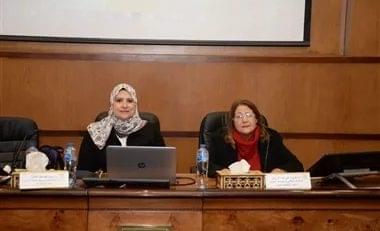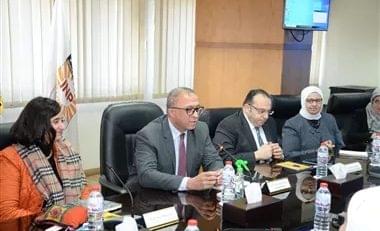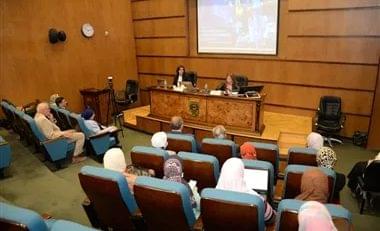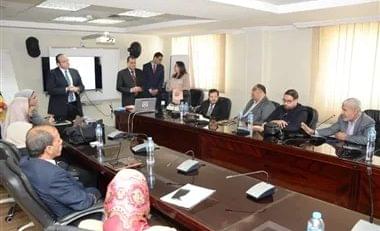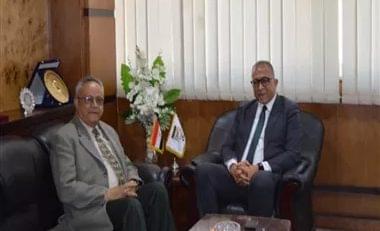Within the framework of the advisory role played by the National Planning Institute in providing scientific and technical advice in the areas of planning and development, Dr. Hala Abu Ali, Vice President of the National Planning Institute, participated in a panel discussion on green GDP, to present the methodologies and outputs of the study implemented in cooperation with the Ministry of Planning and Economic Development entitled “Green National Accounts”, held within the activities of the Conference of the Parties to the United Nations Framework Convention on Climate Change COP27, which was held in Sharm El-Sheikh from 7-18 November, in the presence of a number of world heads of state, and a wide international participation in the presence of more than 40,000 people representing about 190 countries, and dozens of international and regional organizations.
The session was attended by Dr. Ahmed Kamali – Deputy Minister of Planning and Economic Development, Dr. Hala Abu Ali – Vice President of the Institute of National Planning, Dr. Ahmed Ashour – Supervisor of the National Accounts Unit at the Ministry of Planning and Economic Development, and Dr. Susanna Schwedrowski, Director of the North Africa Office in the Committee The United Nations Economic Co-operation and Development Department, Dr. Paul Chriar, Head of Statistics and Director of the Statistics and Data Directorate of the Organization for Economic Cooperation and Development, and Dr. Raffaello Cervigny, Environmental Economist at the World Bank.
Dr. Ahmed Kamali, Deputy Minister of Planning and Economic Development, referred to the recent reforms in the Egyptian state to improve the accuracy and frequency of national accounts in Egypt, noting that given Vision 2030 and the importance of green economy and green finance, we need to think about how to do all those efforts Not only by the Egyptian government, but with the participation of both the private sector and civil society.
Kamali pointed out that the percentage of green projects in the investment plan amounted to 15% last fiscal year, and reached 30% during the current fiscal year, and the percentage of green projects in the 2025/24 plan is targeted to reach 50%.
At the beginning of her speech, Dr. Hala Abu Ali, Vice President of the Institute of National Planning, explained that a team of distinguished researchers from the Institute of National Planning were working on preparing this important study on green GDP, and the study concluded that green GDP has become an important measure, correcting GDP. The traditional approach takes environmental issues and their consequences into account in addition to the use of natural resources, such as energy depletion, mineral depletion, and the cost of pollution, meaning that it represents not only the depletion of national resources but also the cost of environmental degradation.
Abu Ali explained that after reviewing different methodologies and the experiences of different countries, such as China, Thailand, Ukraine and others in this regard, we found that the results are very diverse in the difference between GDP and green GDP, with the difference ranging between 5% to 40% of GDP , depending on the methodology that is implemented, depending on what is taken into account to assess the depletion of natural resources and environmental degradation in this regard.
It is worth noting that the methodology that fits with the Egyptian case was chosen in terms of data availability and consistency with the system of national accounts followed in Egypt, where it was found that the difference between GDP and green domestic product ranges between 8% to 12%.


